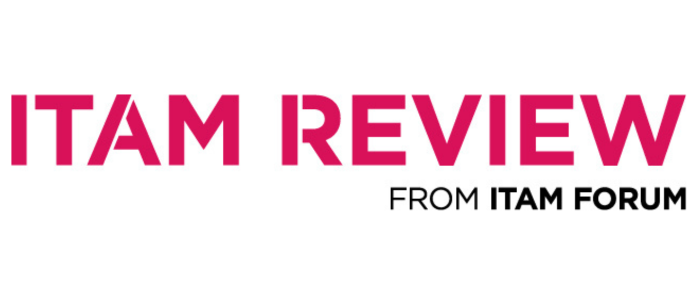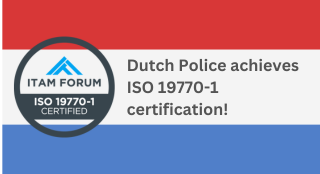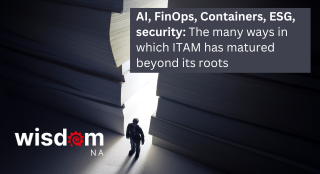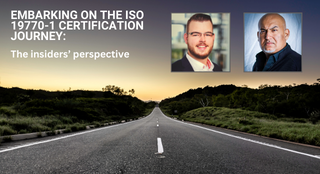How ISO 19770 certification will help ITAM tackle today’s global challenges
Johannes Biesing, director of sales at USU, explores the various challenges faced by ITAM teams today; including a lack of resources, internal support and visibility for their work, and how this could be helped through greater standardisation and agility in ITAM via ISO 19770 certification.
The topics that will move IT asset managers in 2023
Global challenges are moving many companies to take a more conscious approach to managing their IT assets, which is naturally influencing the ITAM industry. Several factors are at play:
- Record inflation in most industrialised countries, putting IT budgets under pressure.
- Skilled labour shortages require greater efforts to recruit in-house talent, but also increase the need for more efficient processes and automation.
- Geopolitical tensions have greatly increased the importance of resilience and security issues.
- Companies increasingly expect their suppliers to have functioning and certified management systems in place.
Managing inflation-driven price increases
Gartner estimates that 65% of CFOs plan to counter inflation and rising purchase prices with price increases. But raising prices isn’t the only option available to them. For 23% of CFOs, cost optimization and efficiency improvements are their preferred choice, since it minimizes the impact on the business in the short to medium term.
Dedicated IT asset managers are needed because price increases from software, hardware and IT service providers have a significant impact on IT budgets. When vendors regularly increase prices for ongoing maintenance contracts and subscriptions, companies feel compelled to identify strategically important applications and divert budgets for these vendors from other providers.
Automation driven by a shortage of talent
Increased spending on skilled IT staff is driving companies to standardise processes and reduce or completely automate manual work through digital processes. Cloud computing further increases the need for automation. By 2025, companies will spend an average of 70% of their expenses on cloud-based software. Appropriate tools will therefore be needed to proactively manage these cloud and SaaS costs.
The dynamic nature of these resources require special attention, so companies must implement standardized software request processes to retain control over usage and costs.
Obtain ITAM ISO certification to validate and prove quality to stakeholders
Supplier assessments that query management systems around IT security or sustainability / ESG (environmental, social and governance) in a structured manner are now firmly established in many industries and the requirements have been successively tightened by new standards. With a certification of IT asset management systems, companies can officially document to both customers, software manufacturers and internal stakeholders that they have “done their homework”.

We were delighted to learn that HDI, an insurer belonging to the Talanx Group, was the first end-user company in the world to achieve official certification in accordance with ISO 19770. It is safe to assume that other companies will follow in their footsteps and announce their own certification in the coming months.
The ITAM Forum, together with the official certification partner Brand Compliance, is now offering the ISO/IEC 19770-1 Practitioner Course, in addition to USU being one of just six Certification Patrons authorised to support and guide customers through their ISO Certification journey. As a result trained consultants will soon be able to apply the ISO/IEC 19770-1 standard to their own company, and prepare themselves for an audit by Brand Compliance to obtain their own ISO 19770 certification.
I predict that as ISO/IEC 19770-1 becomes more established it will become an increasingly important factor in supplier selection going forward. IT asset management teams should be prepared to deal with the standard accordingly.
Look out for USU at Wisdom EMEA 2023 where they will be hosting the “SAM meets SaaS – Lesson’s learned from the past” Spotlight session and participating in the always-popular “Sponsors V Delegates.”
Can’t find what you’re looking for?
More from ITAM News & Analysis
-
Broadcom vs Siemens AG - A Brewing Storm
The ongoing legal battle between VMware (under Broadcom ownership) and Siemens is yet another example of why ITAM goes far beyond license compliance and SAM. What might, at first glance, appear to be a licensing dispute, ... -
Shifting Left Together: Embedding ITAM into FinOps Culture
During one of the keynotes at the FinOps X conference in San Diego, JR Storment, Executive Director of the FinOps Foundation, interviewed a senior executive from Salesforce. They discussed the idea of combining the roles of ... -
Addressing the SaaS Data Gap in FinOps FOCUS 2.1
I recently reported on the FinOps Foundation’s inclusion of SaaS and Datacenter in its expanded Cloud+ scope. At that time, I highlighted concerns about getting the myriad SaaS companies to supply FOCUS-compliant billing data. A couple ...
Podcast
ITAM training
Similar Posts
-
How ISO/IEC 19770-1 Can Help Meet FFIEC Requirements
In the world of ITAM, the regulatory spotlight continues to intensify, especially for financial institutions facing increasing scrutiny from regulatory bodies due to the growing importance of IT in operational resilience, service delivery, and risk management. ... -
The Dutch Police Achieves ISO 19770-1 Certification
The Dutch Police recently became the 4th organisation (ever!) to achieve ISO 19770-1 certification for its ITAM management system. This is a massive achievement, and, here’s why does it matter… Certification not only recognises the great ... -
ITAM & AI, FinOps, Containers, ESG, security: The many ways in which ITAM has matured beyond its roots
ITAM, AI, FinOps, Containers, ESG, security… Back in January I wrote about my picks from the agenda for Wisdom NA 2024. Building up to the event I also interviewed Eva Louis about the intricacy of IT ... -
Embarking on the ISO 19770-1 certification journey: The insiders’ perspective
Interviews with HDI and Softline about their ISO 19770-1 certification journeys One of the founding aims of the ITAM Forum was to create a path for organisation’s to certify their ITAM processes against the global ISO ...




